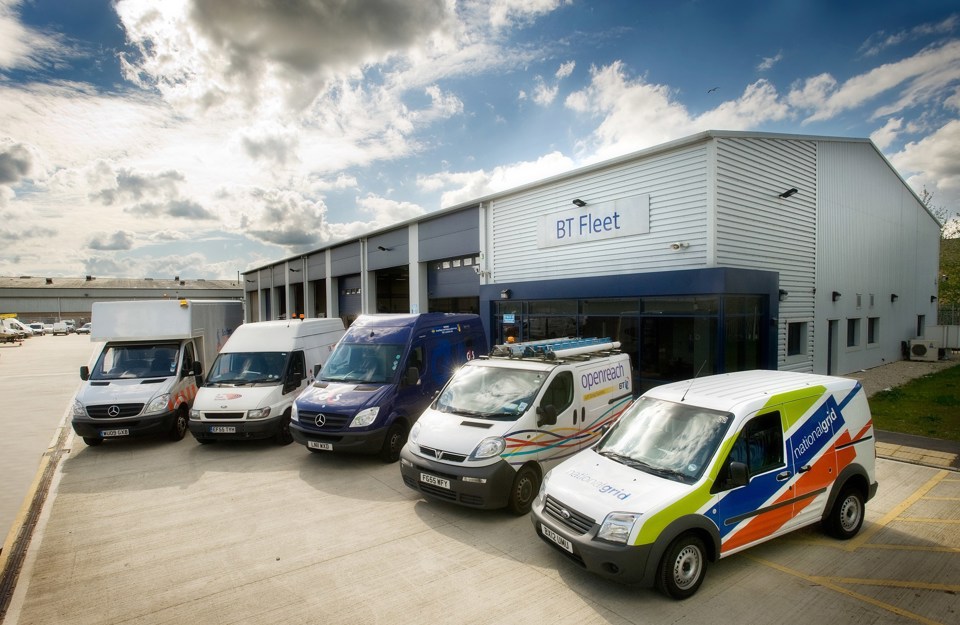The UK’s second largest fleet has announced plans to phase out diesel-only vehicles and migrate to hybrid and full electric vehicles over the next decade or so.
BT operates 32,000 vehicles – 4,400 cars, 25,500 vans and 2,100 trucks – and currently has 347 alternative-fuel cars and vans on its fleet. It predicts a big uplift next year as more hybrid and plug-in electric vehicles are added to the company car choice list.
However, expectations need to be tempered; there will not be a dramatic and sudden switch to electric power as trumpeted in the national media, according to Henry Brace, managing director of the telecoms giant’s in-house fleet management provider, BT Fleet Solutions.
“This isn’t new, as such; we have an agenda to be at the forefront of electric technology as part of our commitment to the Paris agreement,” Brace told Fleet News. “We will do everything we can to move to low or zero emission technology by 2030.”
The pace of change will be part-dictated by BT’s change cycles, presently seven or eight years for its light commercial fleet. It recently went through a major replacement programme, which means around half of the fleet is not due for change until 2022/23.
“Cars are easier; we will introduce more hybrid and pure EVs and we are talking to manufacturers about getting a compelling case for those,” Brace said. “The nut to crack is vans and manufacturers’ ability to meet demand and develop new models.”
His main concern is about availability of suitable electric vans, which are lagging behind the progress in cars.
“Everyone sees the moves in the car space and thinks CVs will go in the same direction,” he said.
“But electric is only viable in smaller vans at the moment. We are still looking for something in the large van space and we will be working hand-in-hand with manufacturers to ensure they develop vehicles with the payload we need.”
Brace is right to add a note of caution to BT’s ambitions; British Gas created its own headlines in 2014 when it revealed an EV target of 10% of its fleet by 2017, equivalent to 1,300 vehicles. It currently has around 113 and has pushed back the target to 2020 after struggling with infrastructure and the slow development of electric van technology.
Iveco has offered an electric Daily for a number of years, albeit with minimal uptake. Interest in 3.5-tonne electric vans should increase later this year with the appearance of the Volkswagen e-Crafter and the Renault Master ZE, although it has been delayed until the start of 2018.
However, Brace predicts that the electric van market could be shaken up by a new entrant in much the same way that Tesla has disrupted the traditional car manufacturers.
Tesla has already been courting potential fleet customers with a teaser campaign about an electric truck, which it intends to reveal on October 26.
Tesla CEO Elon Musk has suggested that the vehicle would have better torque than a diesel truck, while analyst Morgan Stanley estimates that it could cost up to 70% less to run due to fuel savings, lower maintenance needs and cheaper insurance premiums.
Brace’s other reservation involves charging electric vehicles at night.
He explained: “It’s not the national infrastructure that I think about; it’s domestic. Our employees take their vans home and that’s where it costs the most, in high density housing.”
Nevertheless, despite all the hurdles, BT is committed to bringing more electric and hybrid vehicles onto the fleet in as speedy a timescale as the technology allows.
“The aspiration is certainly there, but it has to be operationally and commercially viable. It will be a challenge but we are up for it,” Brace said.
Royal Mail, the UK’s largest fleet, is also starting to adopt electric vehicles after announcing a trial of nine Arrival electric vans.
The London-based trials began with three six-tonne trucks last month, followed by three 3.5-tonne vehicles and three 7.5-tonne trucks later in the year.
Elsewhere, global business leaders have committed to a new electric transport initiative to make EVs “the new normal”, according to Helen Clarkson, chief executive officer at The Climate Group.
Among the companies committing to fast-tracking the uptake of EVs are Heathrow Airport, which recently took on 17 Nissan Leafs, Ikea, Unilever and LeasePlan, which has outlined plans to transition all its employee fleet to electric by 2021, as well as encourage customers to adopt EVs.




















Login to comment
Comments
No comments have been made yet.